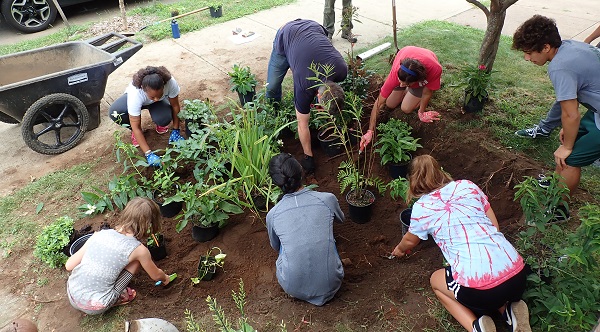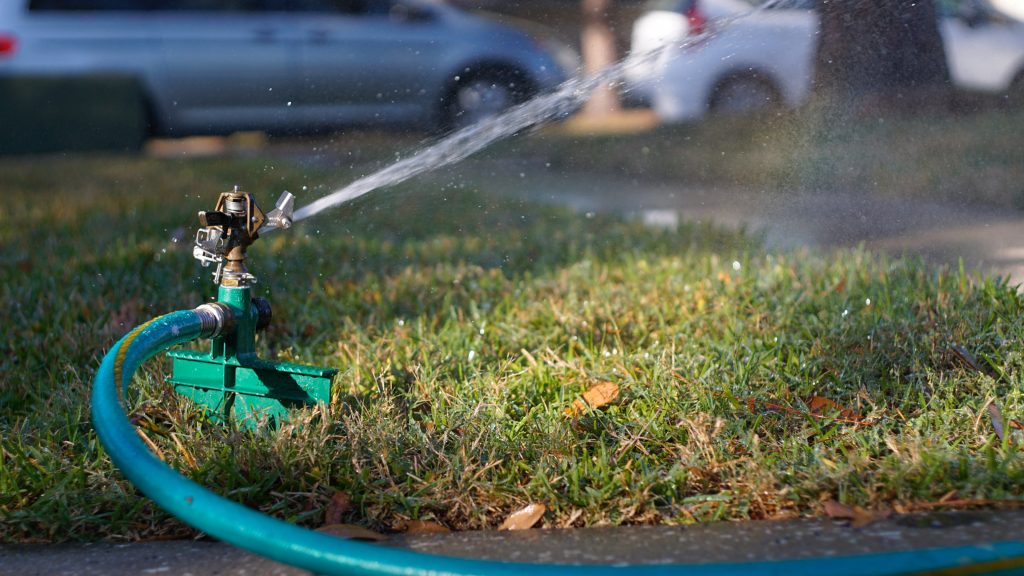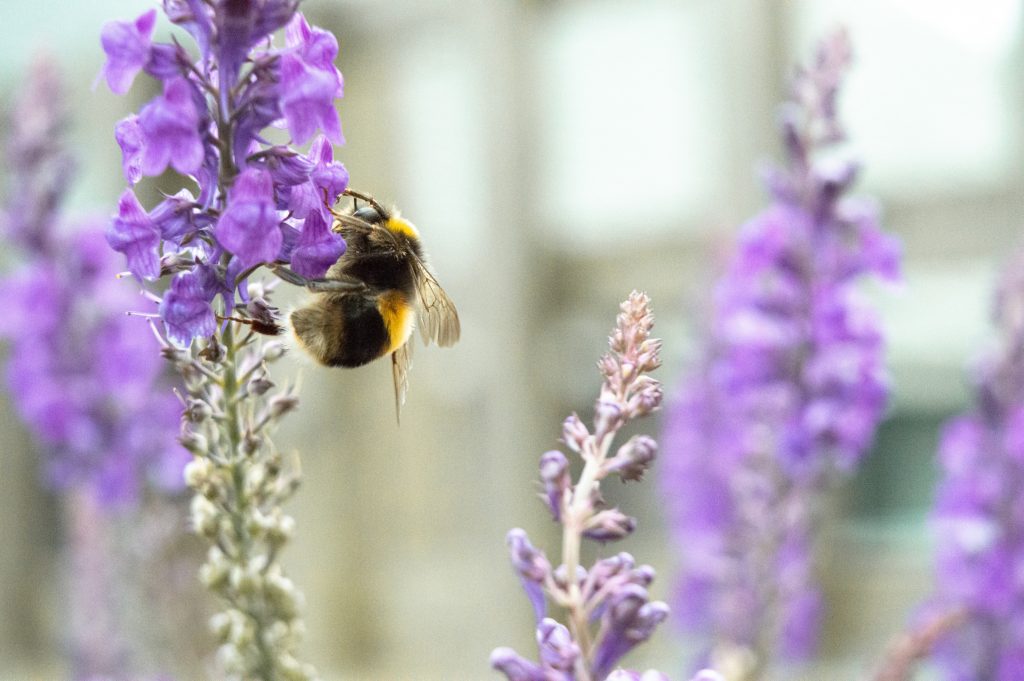“Save the Sound,” starting in your own front yard

It’s easy to see how raw sewage or chemical runoff flowing directly into Long Island Sound is bad for the water and for all of us. But it can be harder to see how the chemicals and practices you employ on your own lawn and garden may be doing damage, too. Even if you live miles from the shoreline, everything you put on your own front yard will eventually make its way to the Sound, through either groundwater or runoff into storm drains.
In fact, between five and 10 percent of the nitrogen pollution that enters the Sound comes from stormwater runoff. A lot of that originates on lawns and landscaped areas. Five to 10 percent may seem like a small amount, but it could be the difference between contributing to the annual problem of a summertime drop in dissolved oxygen (known as hypoxia) that has afflicted the Sound for decades—or solving it.
With that in mind, as the weather warms and the blossoms burst, try these Sound-friendly gardening and yard care practices:
- Lawn fertilizers are a key source of nitrogen pollution, and most lawns are fed more than they need. Have yours tested to find out whether it needs fertilizer at all. If so, feed it once a year, or twice at most. The best time to fertilize is in the fall, around Labor Day, when the ground is cool.
- If you must fertilize, use organic, slow-release fertilizers rather than petroleum-based fertilizers.
- Don’t cut your grass too short! Instead, leave it at a height of two to four inches. If you cut it too short, there isn’t enough left of each blade of grass to fully feed itself. Plus, longer grass actually blocks weed growth by shading weeds from the sun.
- Nitrogen is a necessary nutrient for plants, but many people rake up the very stuff that can feed their lawn: grass clippings. Raking also stresses your lawn, tearing grass from its roots and creating open spaces for weeds to take hold, leading to a cycle of chemical use for weed control. Instead, use mulching blades on your mower to push the clippings down into the base of the lawn.
- It’s also best to mow once a week at most. In fact, it’s actually better to put a week in between each mow to allow the grass enough time to recover. A healthier, less stressed lawn requires less fertilizer and less water. And it costs less to maintain!

- Only apply water when it is actually necessary—when it hasn’t rained. Your lawn and most plants only need about one inch of water per week to thrive. Watering just the right amount will prevent unhealthy runoff.
- Water low to the ground and evenly across the entire lawn. Many sprinklers unevenly distribute the water, often creating super-saturation points that can wash fertilizer and pesticides into the water that leads to the Sound.
- Avoid watering in the middle of the day because you’ll lose a lot of water to evaporation, and avoid evening watering, which can cause mold and mildew to build up when temperatures drop at night.
- Give up some grass! A lawn that’s half as big results in half as much runoff. Replace turf grass with native shrubs that bees and birds like. You’ll reduce pollution and have a yard that’s better for wildlife. Most native plants require less watering and upkeep than ornamentals, and the pollinators you attract will help your other garden plants and vegetables flourish, too.
Changing how you care for your lawn can help Long Island Sound recover. It can also help you! Improving your landscaping practices is easy, your property will look at least as good as it did before, and it will be a safer place for birds, beneficial insects, and other wildlife.

Have a landscaper and don’t know what to ask them to do?
Click here to DOWNLOAD a letter outlining ways they can help you have a healthy, environmentally-friendly yard [available in English and Spanish].
Taking care of your own lawn?
Click here to DOWNLOAD a healthy yard checklist.
For more on nurturing a healthy yard, check out the following videos in our Healthy Yards series:
Digging Into Soil Health: Join Jay Archer of Green Jay Landscaping to learn about healthy soil, what’s harming it, and how you can help through regenerative lawn care and landscaping plans.
Here Comes the Summer Sun: Save the Sound’s Suzanne Thompson talks about keeping your yard happy and healthy without the use of excess chemical fertilizers or over-watering. Suzanne discusses how to cut your mowing time in half and reduce your lawn in favor of alternative options, using native plants that benefit wildlife, the environment, and you. She also talks about how to organically control invasive knotweed with her “Nix the Knotweed” initiative.
The Challenges of Fall: Landscape designer Kathleen Connolly, owner of Speaking of Landscapes, discusses how to use autumn leaves to increase soil fertility. Also, learn how to provide protection for beneficial insects with better leaf management. Plus, Kathleen discusses all of the problems created by using leaf blowers; it’s not just the noise!
Get Ready for Spring: Tony Piazza of Piazza Horticultural Group in Southampton, NY, talks about natural alternatives to fertilizers, pesticides, and herbicides as well as best practices to build a healthier yard for you and your family. Whether you have a big lawn, a woodsy yard, a community garden plot, or even just a window box, Tony has helpful tips to help you prepare for spring.
Still looking for more? Check out these other great resources on Sound-friendly gardening and lawn care:
Learn more and collect some tips from the Long Island Sound Study.
Learn how to build your own rain garden using UConn’s rain garden app.
